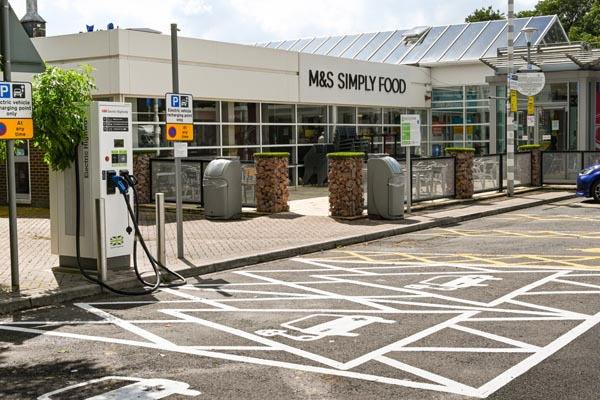The Government is facing criticism for its decision to cut the plug-in car and van grant by up to £1,000 and change the eligibility criteria.
The grant for electric cars is set to go down from £2,500 to £1,500. The upper price limit for eligible car models will fall from £35,000 to £32,000.
The grants for large and small vans are also being reduced. These will go from £6,000 to £5,000 and £3,000 to £2,500 respectively.
Transport minister Trudy Harrison said the Department for Transport wanted to focus the grants on more affordable vehicles.
‘The market is charging ahead in the switch to electric vehicles. This, together with the increasing choice of new vehicles and growing demand from customers, means that we are refocusing our vehicle grants on the more affordable vehicles and reducing grant rates to allow more people to benefit, and enable taxpayers’ money to go further.’

Responding to the news, Society of Motor Manufacturers and Traders chief executive Mike Hawes said: ‘Slashing the grants for electric vehicles once again is a blow to customers looking to make the switch and couldn’t come at a worse time, with inflation at a 10-year high and pandemic-related economic uncertainty looming large.
‘Industry and government ambition for decarbonised road transport is high, and manufacturers are delivering ever more products with ever better performance. But we need to move the market even faster – from one in a hundred cars on the road being electric, to potentially one in three in just eight years – which means we should be doubling down on incentives.
‘Other global markets are already doing so whereas we are cutting, expecting the industry to subsidise the transition, and putting up prices for customers. UK drivers risk being left behind on the transition to zero-emission motoring.’
AA president Edmund King said: ‘Many drivers and fleets will be recalculating today to see if they can still afford their chosen EV now that the grants and threshold have been cut. With ambitious targets heading into 2030 it seems counterintuitive to reduce incentives although we accept that those purchasing the lower value EVs probably have greater need for assistance.’
This article first appeared on localgov.co.uk.





